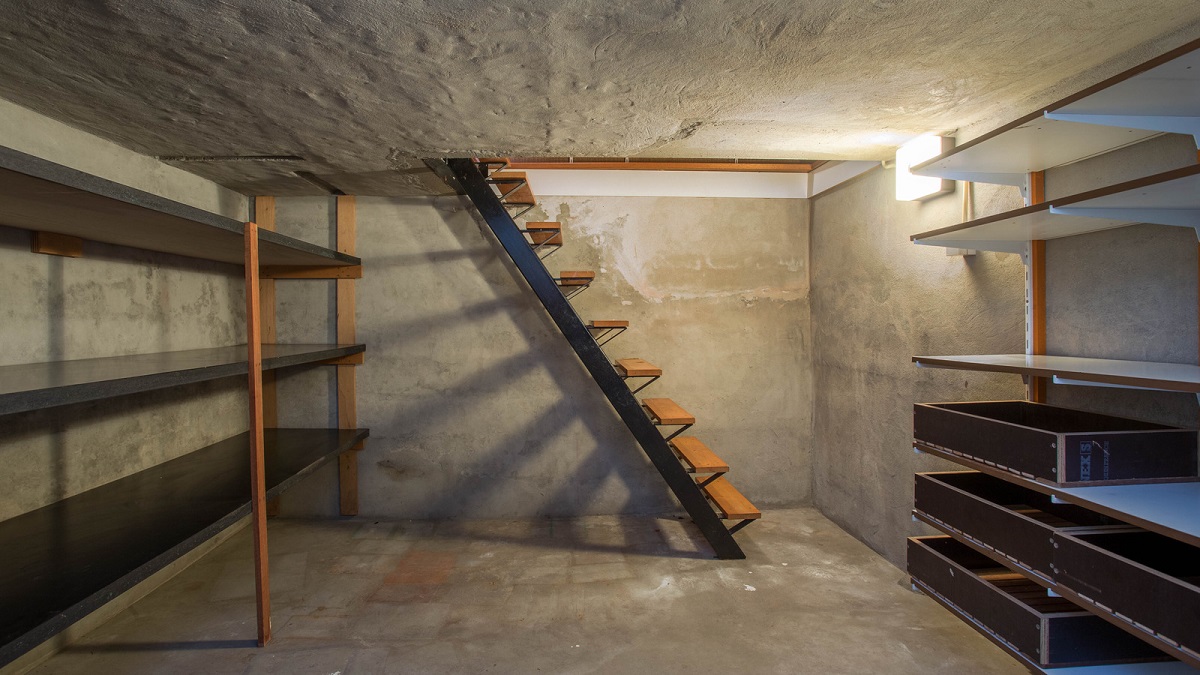

Articles
How Do I Get Rid Of Musty Smell In Basement
Modified: January 8, 2024
Discover effective articles on getting rid of the musty smell in your basement. Learn proven methods to eliminate odors and improve air quality.
(Many of the links in this article redirect to a specific reviewed product. Your purchase of these products through affiliate links helps to generate commission for Storables.com, at no extra cost. Learn more)
Introduction
Having a musty smell in your basement can be unpleasant and off-putting. Not only does it make the space less inviting, but it can also indicate underlying issues such as moisture, mold, or mildew. The musty odor can permeate throughout your home, affecting the overall air quality and potentially causing health issues if left unchecked.
In this article, we will explore the various causes of musty smells in basements and provide effective solutions for getting rid of them. By understanding the root causes and implementing the right strategies, you can restore freshness to your basement and create a healthier living environment.
Before we dive into the solutions, let’s take a closer look at the common factors that contribute to the musty smell in basements.
Key Takeaways:
- Eliminate musty basement odors by addressing moisture issues, cleaning, and promoting airflow. Regular maintenance and preventive measures are key to maintaining a fresh, healthy living environment.
- When dealing with severe mold, water damage, or persistent odors, seek professional help. Prevention, timely repairs, and proactive measures are crucial for long-term basement freshness.
Read more: How To Get Rid Of Musty Attic Smell
Understanding the cause of musty smell in basements
Musty smells in basements are typically caused by excess moisture, which creates the perfect breeding ground for mold and mildew. Basements are often prone to higher humidity levels due to their position below ground level and lack of proper ventilation. This trapped moisture can lead to the growth of mold, mildew, and bacteria, resulting in that unpleasant musty odor.
Common causes of excess moisture in basements include:
- Water leaks: Cracks in the foundation, damaged pipes, or faulty plumbing can all lead to water seepage into the basement.
- Poor ventilation: Without proper airflow, moisture accumulates and lingers in the basement, creating a damp environment.
- Inadequate insulation: Insufficient insulation can cause condensation to form on cold surfaces, promoting mold and mildew growth.
- Flooding: In cases of heavy rain or flooding, water can enter the basement and cause extensive damage if not properly addressed.
Identifying the specific cause of the musty smell is crucial in addressing the issue effectively. It may require some thorough inspection and investigation to pinpoint the source of the moisture and potential mold growth. Once you have a clear understanding of the underlying cause, you can implement the appropriate solutions to eliminate the musty odor and prevent it from reoccurring.
Removing moisture from the basement
To eliminate the musty smell in your basement, it’s important to tackle the root cause: excess moisture. Here are several effective methods for removing moisture and creating a drier environment:
- Identify and fix water leaks: Inspect the basement for any signs of water leaks or damage. Look for damp areas on walls, ceiling, or floors, and address the issue promptly. Repair any cracks, seal gaps, or fix plumbing problems to prevent further moisture ingress.
- Use a dehumidifier: A dehumidifier helps to reduce and control the humidity levels in your basement. Choose a dehumidifier with the right capacity for your space and run it regularly to remove excess moisture from the air. Empty the water reservoir as needed.
- Install proper ventilation: Improve airflow in the basement by installing vents or fans. This helps to circulate fresh air and prevent the accumulation of stagnant moisture. Consider using a ventilation system specifically designed for basements to effectively control humidity.
- Insulate pipes and surfaces: Insulating exposed pipes and cold surfaces can help prevent condensation and subsequent mold growth. Use insulation materials designed for this purpose and wrap pipes to minimize moisture buildup.
- Ensure proper drainage: Make sure your external drainage system is functional and directs water away from the foundation. Clean your gutters regularly to prevent water from overflowing and seeping into the basement.
Implementing these moisture removal methods will create a drier environment in your basement, reducing the ideal conditions for mold and mildew growth. However, it’s essential to address any existing mold issues to completely eliminate the musty smell.
Note: If you have a severe mold problem or water damage that is beyond your expertise to handle, it’s advisable to seek professional help. Mold remediation specialists have the knowledge and equipment to effectively remove mold and restore your basement to a safe and healthy condition.
Cleaning and organizing the basement
Once you’ve addressed the moisture issue, the next step in getting rid of the musty smell in your basement is to thoroughly clean and organize the space. This process helps remove any existing mold spores, dust, and debris that may contribute to the unpleasant odor. Here’s how to tackle this task:
- Clear out clutter: Start by removing any unnecessary items or clutter from your basement. Decluttering not only helps improve airflow but also makes it easier to clean and maintain the space in the long run.
- Dust surfaces: Dust all surfaces, including walls, shelves, and furniture, using a damp cloth or a vacuum cleaner with a brush attachment. Be thorough in your cleaning to remove any settled dust or spores that may contribute to the musty smell.
- Scrub the floors: If your basement has a concrete or tiled floor, scrub it using a mixture of warm water and a mild detergent. Pay extra attention to any visible stains or areas with mold growth. Use a stiff brush or sponge to scrub the surface, and be sure to rinse thoroughly.
- Wash fabrics: Launder any fabric items stored in the basement, such as curtains, rugs, or cushions. This helps remove any trapped odors and ensures that they are clean and fresh. Follow the manufacturer’s instructions for washing and drying.
- Disinfect surfaces: Use a mixture of water and bleach or a specialized disinfectant cleaner to sanitize surfaces in the basement. Pay close attention to areas that may be prone to mold growth, such as corners, cracks, and hidden spaces behind furniture or appliances.
By cleaning and organizing your basement, you not only remove potential sources of odor but also create a healthier and more comfortable space. Regular maintenance and cleaning will help prevent the buildup of musty smells in the future.
Remember, it’s important to wear protective gear such as gloves and a mask when cleaning and handling potentially moldy areas. If the mold infestation is extensive or you are unsure about tackling the cleaning process yourself, it’s best to consult a professional mold remediation service.
Promoting better airflow in the basement
Improving airflow in your basement is essential for preventing the buildup of moisture and eliminating the musty smell. Proper ventilation helps to circulate fresh air, reduce humidity levels, and discourage mold and mildew growth. Here are some tips to promote better airflow:
- Open windows and doors: When weather conditions allow, open windows and doors to allow fresh air to enter the basement. This helps to exchange stale air with outdoor air and improve ventilation.
- Install exhaust fans: Consider installing exhaust fans in the basement. These fans help to remove humid air and odors, promoting better air circulation. Place fans in strategic locations to maximize airflow, such as near moisture-prone areas or corners.
- Use oscillating fans: Place oscillating fans in the basement to keep air moving. These fans help to distribute air evenly and prevent stagnant air pockets. Position fans in different directions to ensure optimal airflow throughout the space.
- Clear air vents and registers: Ensure that air vents and registers in the basement are clean and free from obstructions. Remove any dust or debris that may hinder proper airflow. Consider vacuuming the vents regularly to maintain an unobstructed passage for air.
- Utilize dehumidifiers with built-in fans: Invest in a dehumidifier with a built-in fan to not only reduce moisture levels but also improve air circulation. These units draw in humid air, extract the moisture, and release drier air back into the space.
It’s important to note that airflow alone may not completely eliminate musty smells if the underlying moisture issue is not addressed. Combining proper ventilation with moisture removal techniques will yield the best results in creating a fresh and odor-free basement.
Additionally, regular maintenance and inspection of your home’s HVAC system can also contribute to improved basement airflow. Ensure that air filters are clean and properly fitted, and consider consulting a professional if you suspect any issues with your heating or cooling system.
Implementing these strategies for better airflow will help prevent the buildup of moisture and maintain a fresh, odor-free basement. Remember to monitor humidity levels regularly and make adjustments as needed to promote a healthy living environment.
To get rid of musty smell in the basement, try using a dehumidifier to reduce moisture, clean and disinfect any mold or mildew, and improve ventilation with fans or open windows.
Read more: How To Get Rid Of Musty Smell In Closet
Using deodorizers and absorbents
In addition to addressing the underlying causes of musty smells in your basement, using deodorizers and absorbents can help eliminate the unpleasant odors and keep the air fresh. These products work by neutralizing odors and absorbing excess moisture. Here are some effective options to consider:
- Baking soda: Baking soda is a natural deodorizer and absorbent. Place open containers of baking soda around the basement to help absorb odors. Replace them every few months or as needed.
- Activated charcoal: Activated charcoal is known for its ability to absorb odors and moisture. Place charcoal briquettes or activated charcoal sachets in the basement to help eliminate musty smells. You can find these products at home improvement or pet stores.
- Odor-absorbing gels and packets: There are commercially available odor-absorbing gels and packets designed specifically to eliminate musty odors. These products contain ingredients that trap and neutralize odors. Follow the instructions provided to place them strategically in the basement.
- Odor-neutralizing sprays: Spray deodorizers specially formulated for eliminating musty smells in basements. These sprays contain enzymes or odor-neutralizing agents that help break down and eliminate odor-causing substances. Use as directed and ensure adequate ventilation during and after application.
- Air purifiers with HEPA filters: Consider investing in an air purifier with a High-Efficiency Particulate Air (HEPA) filter. These filters trap and remove airborne particles, including mold spores and other odorous compounds. Place the purifier in the basement and run it regularly to maintain clean and fresh air.
While using deodorizers and absorbents can help temporarily mask or eliminate musty smells, it’s crucial to address the underlying causes of the odors. These products should be used in conjunction with proper moisture removal and regular cleaning and maintenance.
Remember to follow the manufacturer’s instructions when using deodorizers and absorbents, and be mindful of any potential allergens or sensitivities they may pose. If you experience any adverse reactions or the musty smell persists despite your efforts, consider consulting with a professional to assess the situation and provide further guidance.
Checking for leaks and fixing water damage
One of the primary culprits behind musty smells in basements is water intrusion. Therefore, it’s crucial to thoroughly inspect your basement for any signs of leaks or water damage. Identifying and addressing these issues will not only help eliminate the musty odor but also prevent further damage to your home. Here’s what you should do:
- Inspect walls, floors, and ceilings: Look for any visible signs of water stains, discoloration, or dampness on the walls, floors, and ceilings. Pay close attention to corners, baseboards, and around windows or doors. These areas are particularly susceptible to water penetration.
- Check for plumbing leaks: Examine your basement’s plumbing system, including pipes, faucets, and water heaters. Look for any signs of leakage, such as drips or puddles. Fix any plumbing issues promptly to prevent further water damage.
- Examine the foundation: Inspect the perimeter of your basement’s foundation for cracks, gaps, or signs of water seepage. Seal any visible openings and consider applying a waterproof sealant to protect against moisture infiltration.
- Inspect windows and doors: Check the condition of your basement windows and doors. Look for gaps or broken seals that may allow water to enter. Repair or replace damaged windows and doors, and add weatherstripping to ensure a tight seal.
- Evaluate the gutters and downspouts: Clean your gutters regularly to prevent blockages that can lead to water overflow. Ensure that downspouts direct water away from the foundation and extend at least six feet from the house to prevent water from seeping into the basement.
If you discover any leaks or signs of water damage during your inspection, it’s crucial to address them promptly. Depending on the severity of the issue, you may need to hire a professional plumber or contractor to fix the problem. Water damage can lead to structural issues and mold growth, so swift action is essential.
Keep in mind that prevention is key when it comes to avoiding future water damage. Regularly maintain your plumbing system, monitor your basement for signs of moisture, and perform routine checks to ensure that your home is protected from water intrusion.
By identifying and fixing leaks and water damage, you can eliminate the source of the musty odor and create a healthier and more enjoyable basement environment.
Hiring professional help for severe cases
In some instances, musty smells in basements can be caused by severe water damage, extensive mold growth, or other complex issues that require professional expertise. If you’ve tried the previous methods and the musty odor persists or worsens, it may be time to consider hiring a professional to assess and resolve the problem. Here’s when it’s appropriate to seek professional help:
- Extensive mold contamination: If you discover large areas of mold growth or suspect extensive mold contamination in your basement, it’s best to consult a professional mold remediation specialist. These experts have the knowledge, experience, and equipment to safely remove mold and restore your basement to a healthy condition.
- Structural damage: If the musty smell is accompanied by visible structural damage, such as crumbling walls, sagging ceilings, or warped floors, it’s important to consult a contractor or structural engineer. They can assess the extent of the damage and recommend the necessary repairs to prevent further deterioration.
- Persistent water intrusion: If you’ve repeatedly addressed water leaks or drainage issues but still experience water intrusion and subsequent musty smells, it’s advisable to hire a professional to conduct a thorough investigation. They can identify potential sources of water penetration and recommend effective solutions to prevent further moisture problems.
- Health concerns: If you or your family members experience persistent health issues, such as respiratory problems or allergies, that worsen in the basement, it’s essential to consult a professional. They can assess the air quality, perform mold testing if necessary, and recommend appropriate measures to improve the indoor environment.
When hiring professionals, be sure to choose reputable and certified individuals or companies who specialize in the specific issue you’re facing. Request references, check their certifications, and inquire about their experience and guarantees for the work they perform.
While professional help may involve some additional expenses, it’s often worth the investment to ensure the safety and well-being of your home and family. Professionals have the knowledge and equipment to handle severe cases and provide long-term solutions, ultimately saving you time, stress, and potential health risks.
Remember, prevention is always better than repair. Regular maintenance, timely repairs, and proactive measures can help you avoid severe basement issues in the future.
Preventing future musty smells in the basement
Once you’ve successfully eliminated the musty smell in your basement, it’s important to take preventive measures to ensure that it doesn’t return. By addressing the root causes and implementing the following preventive strategies, you can maintain a clean and odor-free basement:
- Control moisture levels: Monitor and control the humidity levels in your basement. Keep them below 50% to discourage mold and mildew growth. Consider using a dehumidifier in humid conditions or during the wetter seasons to maintain optimal moisture levels.
- Insulate and ventilate: Proper insulation and ventilation are key to preventing moisture buildup. Insulate pipes to prevent condensation, and ensure that your basement is well-ventilated. Use fans, open windows, and install vents to promote adequate airflow and reduce humidity.
- Maintain gutters and downspouts: Regularly clean and maintain your gutters and downspouts to prevent water overflow and potential basement flooding. Ensure that water is properly diverted away from your home’s foundation to avoid water intrusion.
- Address leaks promptly: Be vigilant for any signs of leaks or water intrusion, and address them promptly. Repair any plumbing leaks or foundation cracks immediately to prevent further damage and the growth of mold and mildew.
- Regularly clean and organize: Regularly clean and organize your basement to prevent clutter and dust buildup. Dust surfaces, vacuum carpets, and wipe down walls periodically to maintain cleanliness. Keeping the space tidy and well-maintained reduces the potential for mold growth and the accumulation of musty odors.
- Perform regular maintenance: Conduct regular maintenance checks on your home’s HVAC system, plumbing, and foundation. Address any issues promptly to prevent the development of moisture problems or other related issues.
By implementing these preventive measures, you can significantly reduce the chances of future musty smells in your basement. Consistency with maintenance and addressing potential issues early on is key to maintaining a dry, clean, and odor-free environment.
Remember, prevention is always easier and more cost-effective than dealing with the consequences of neglect. By being proactive and taking the necessary steps to prevent moisture and mold growth, you can enjoy a fresh and healthy basement for years to come.
Read more: Why Does Basement Smell Musty
Conclusion
Dealing with musty smells in your basement can be a frustrating and unpleasant experience. However, by understanding the underlying causes and implementing the appropriate solutions, you can effectively eliminate the musty odor and create a clean, fresh, and enjoyable basement environment.
Start by identifying the sources of moisture and addressing them promptly. Fix any leaks, improve ventilation, and use dehumidifiers to maintain optimal humidity levels. Cleaning and organizing your basement, along with regular maintenance, will further contribute to preventing musty smells from recurring.
If the musty smell persists or worsens, it may indicate more severe issues such as extensive mold growth or structural damage. In such cases, don’t hesitate to seek professional help from mold remediation specialists or contractors who can provide the necessary expertise and solutions.
Prevention is key in ensuring a basement remains free from musty smells in the long term. Control moisture levels, maintain proper insulation and ventilation, and regularly clean and organize the space. Address any leaks or water damage promptly and perform routine maintenance checks to catch potential issues early on.
By taking these proactive measures, you can prevent future musty smells and create a healthier living environment for you and your family. Remember, the key to a fresh and odor-free basement is a combination of moisture control, cleanliness, and regular maintenance.
So don’t let the musty smell linger any longer—take action today and enjoy a basement that is free from unpleasant odors and full of fresh, clean air.
Frequently Asked Questions about How Do I Get Rid Of Musty Smell In Basement
Was this page helpful?
At Storables.com, we guarantee accurate and reliable information. Our content, validated by Expert Board Contributors, is crafted following stringent Editorial Policies. We're committed to providing you with well-researched, expert-backed insights for all your informational needs.

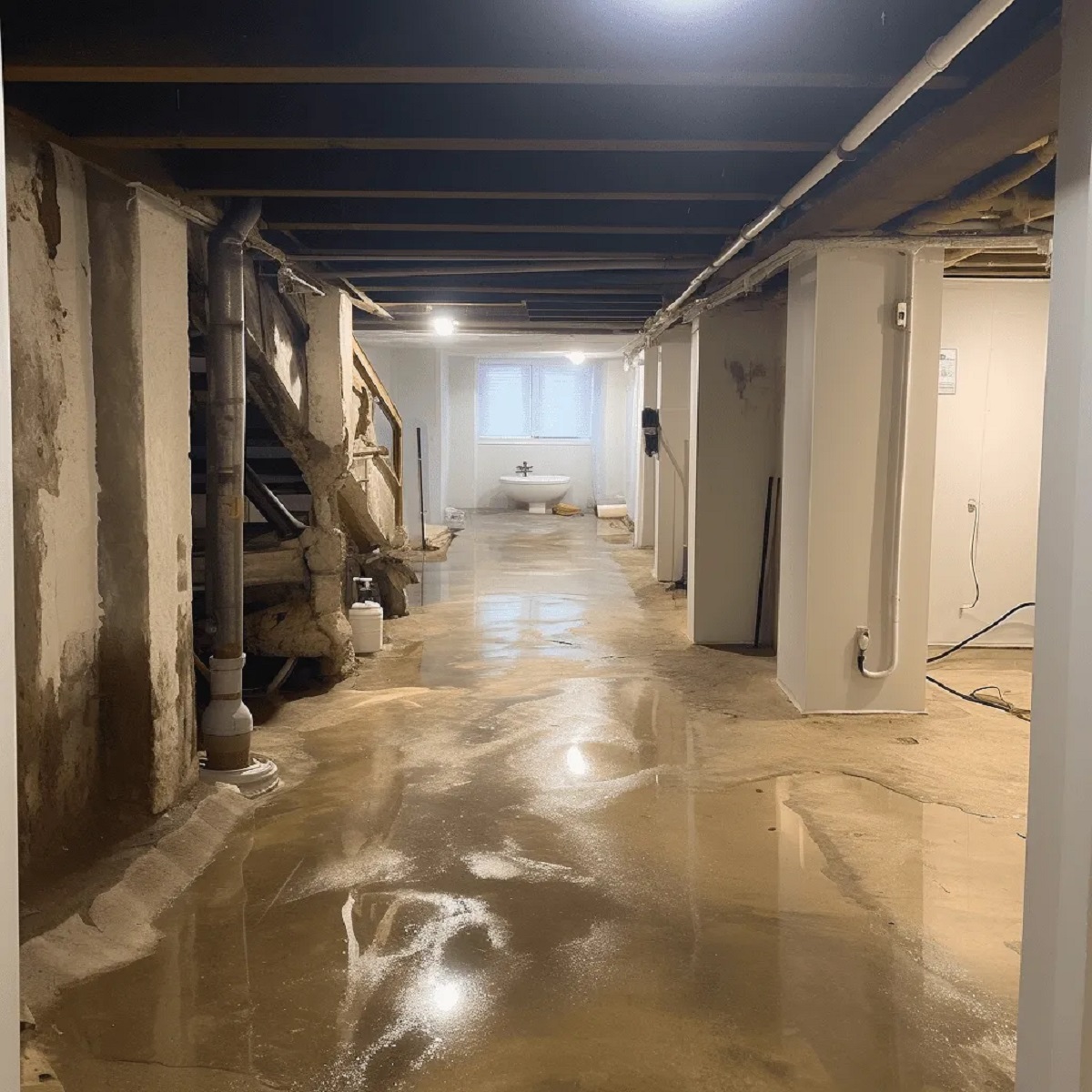
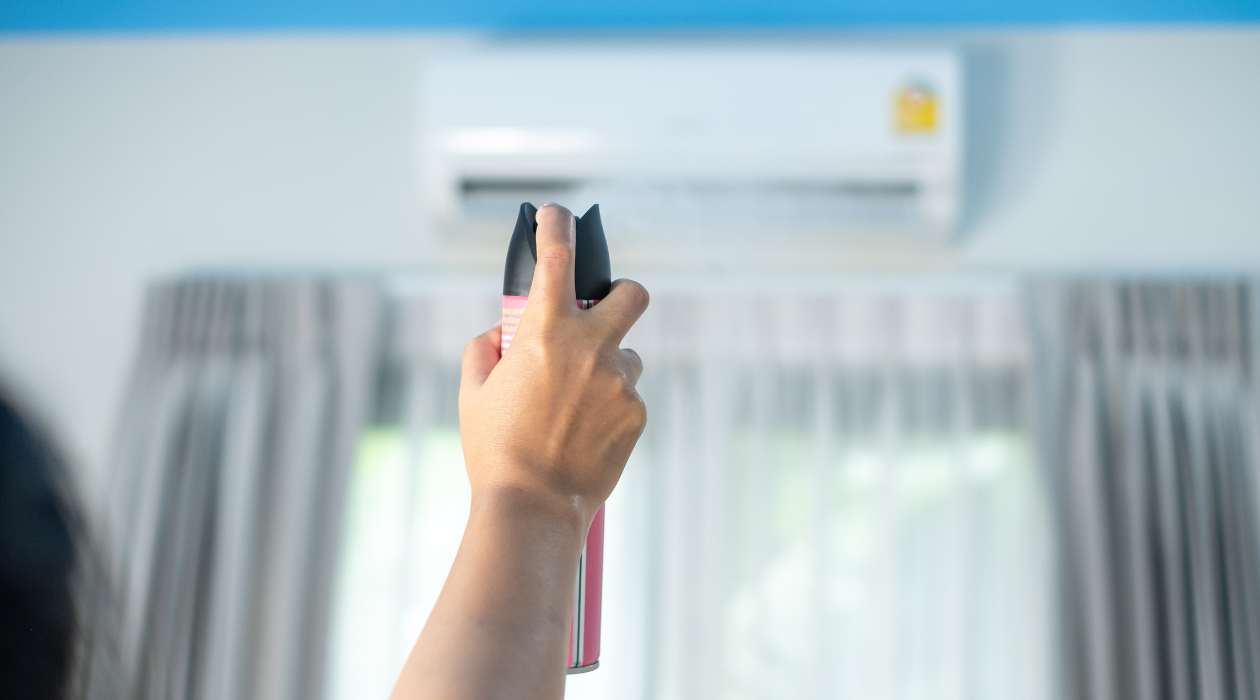
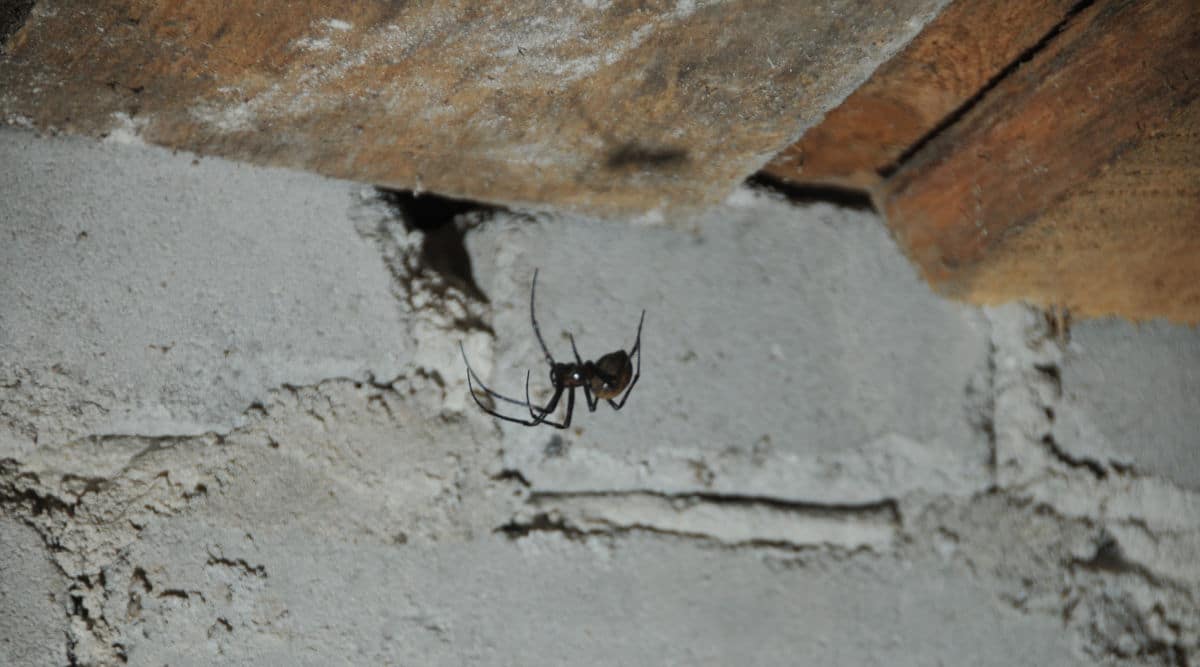

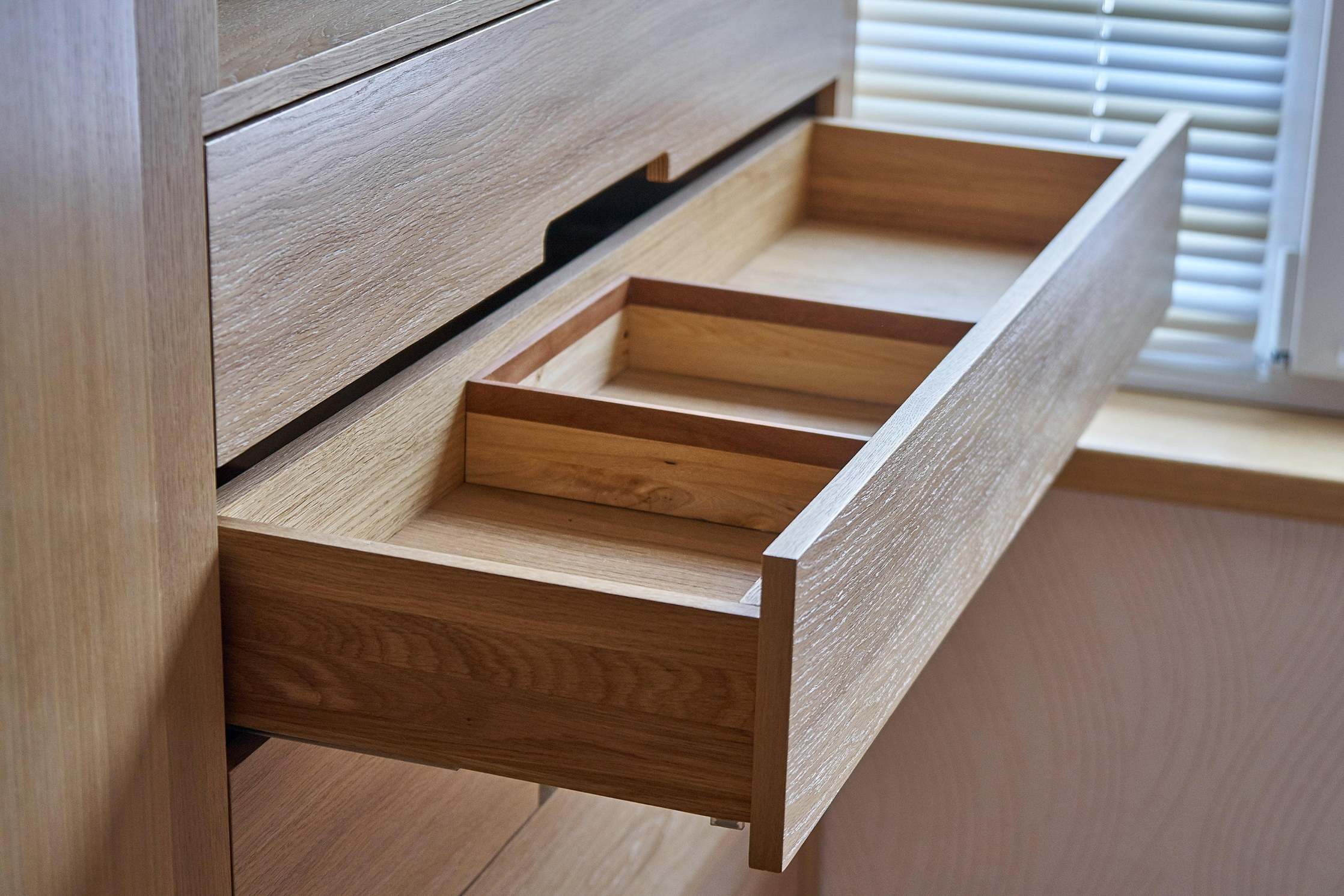

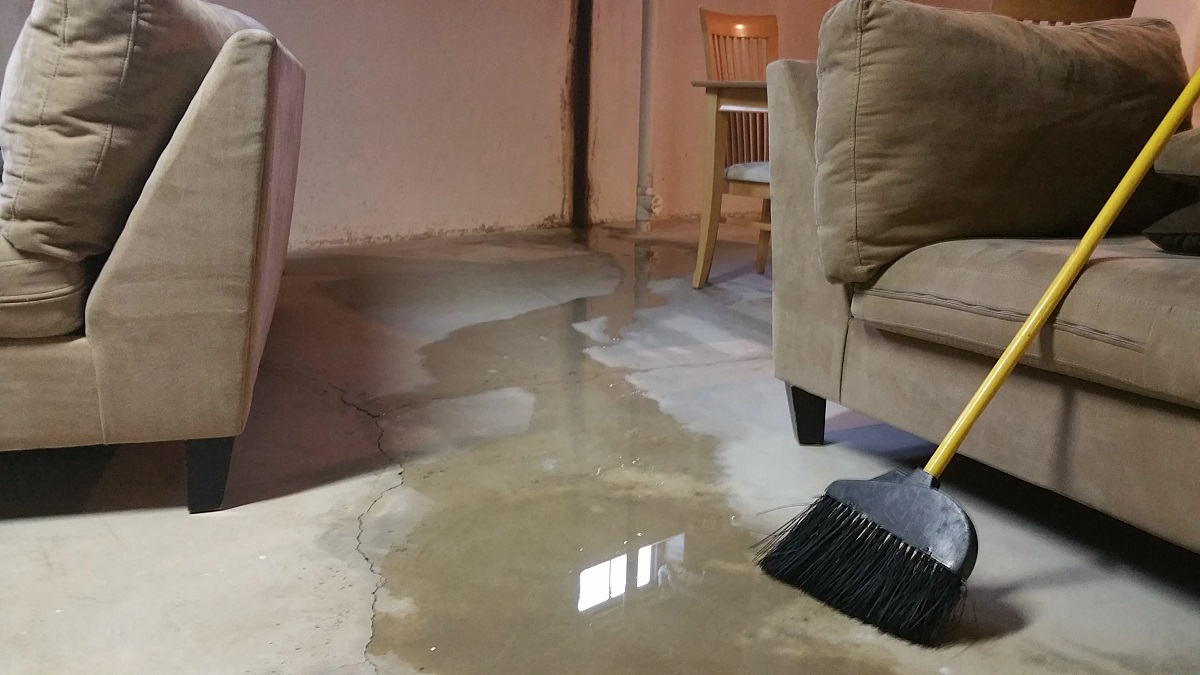
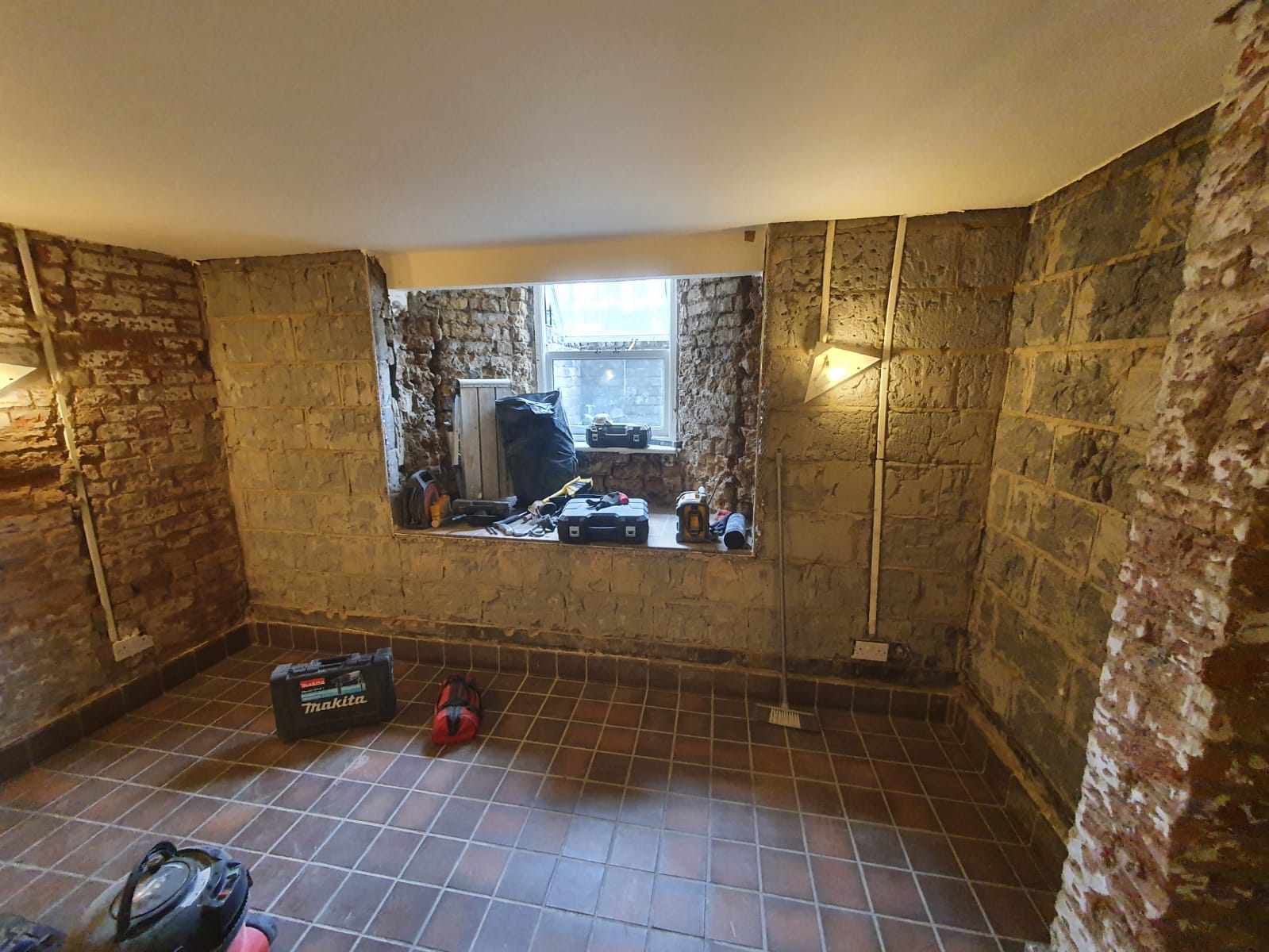
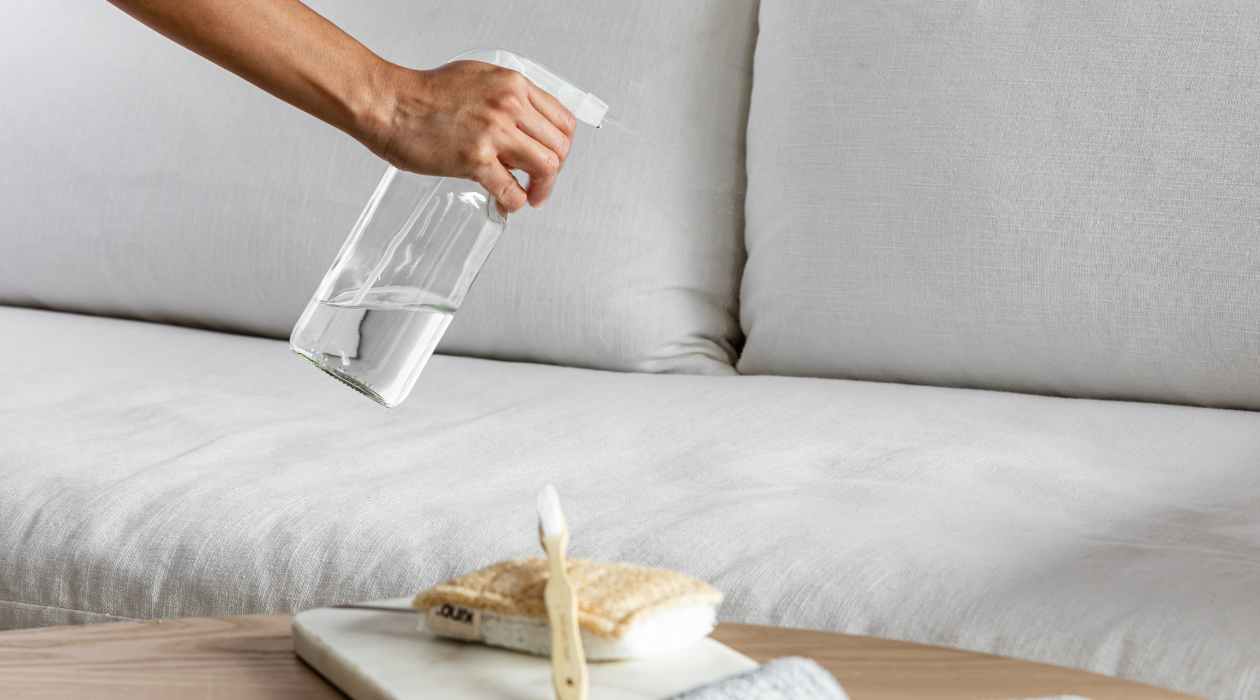
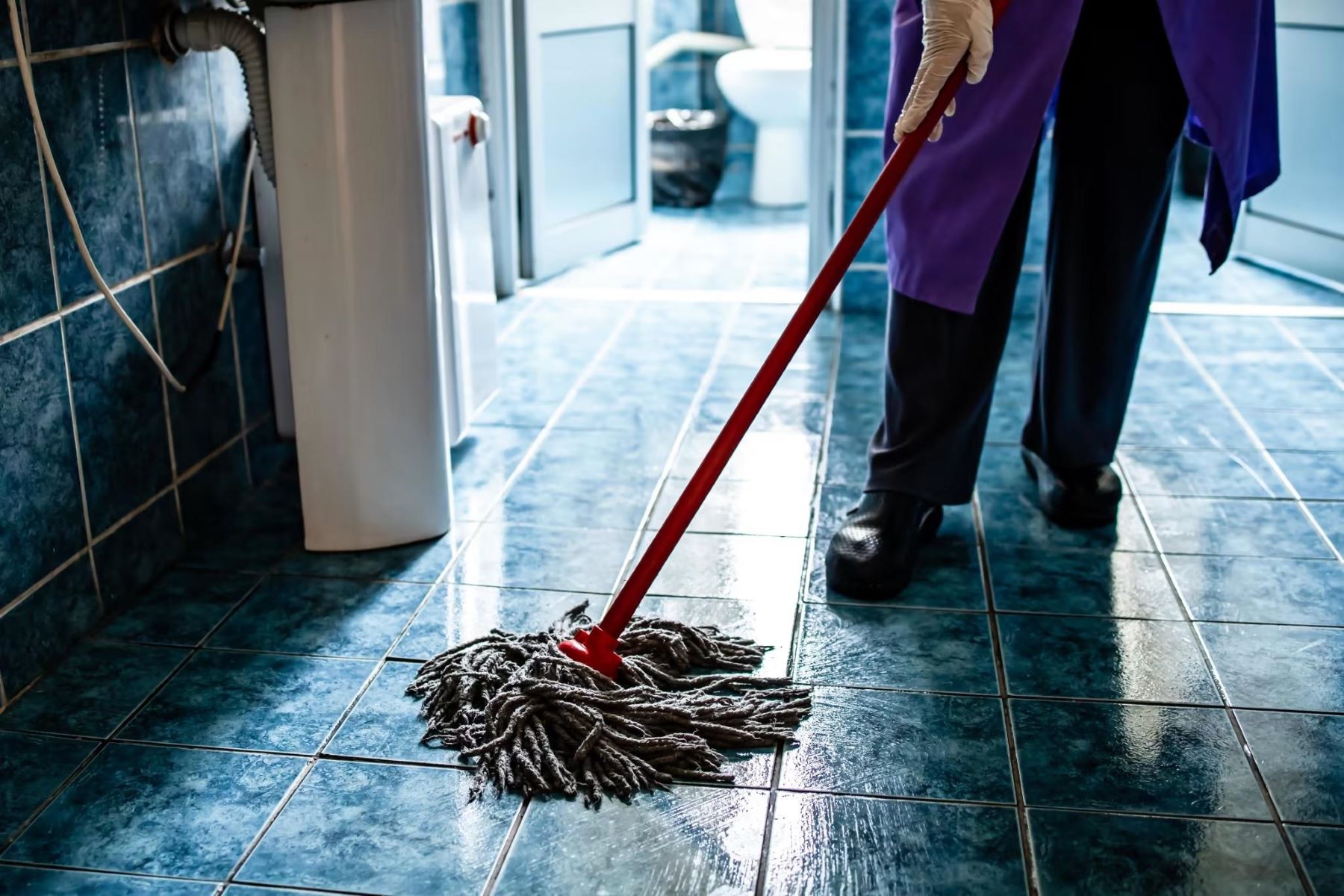



0 thoughts on “How Do I Get Rid Of Musty Smell In Basement”